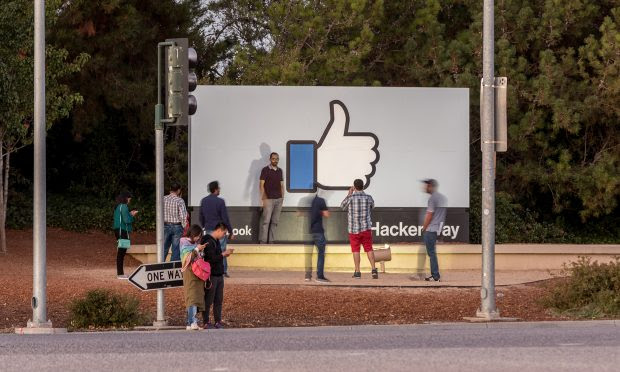Critical Mass: Cases Over 'No Poach' Agreements Draw DOJ Response. Plus, Judge Demands More Details From Plaintiffs Suing Facebook
The U.S. Justice Department has raised its voice in several cases in which employees challenged "no-poach" employment agreements, and lawyers are weighing the impact of the feds' intervention
February 06, 2019 at 02:01 PM
6 minute read
Welcome to Critical Mass, Law.com's weekly digest for class action and mass tort attorneys. Here's what's happening: Why did the DOJ file notices in four class actions over “no poach” agreements? A judge in the Facebook/Cambridge Analytica case has a long chat with the lawyers. Find out which firm won a $41 million pelvic mesh verdict last week.
Send your feedback to [email protected], or find me on Twitter: @abronstadlaw.
DOJ Encroaches on 'No Poach' Class Actions
Class actions have proliferated against restaurant franchises since the U.S. Department of Justice's antitrust division issued guidance on so-called “no poach” agreements in 2016. In class actions filed in the wake of that guidance, a handful of judges have issued rulings against companies like McDonald's and Cinnabon. Now, the DOJ has something to say in cases challenging “no-poach” provisions, according to my story about notices the government has filed in at least four cases.
I asked two defense lawyers what the DOJ's moves could mean. Andrea Murino(Goodwin) told me:
“It's clear they have concerns the guidance is being used in too sweeping a fashion, and so they're trying to carve some limits around it.”
Not necessarily, said Tara Reinhart (Skadden). As to the cases involving franchises, which plausibly could argue that “no-poach agreements” help them compete with other brands, she told me: “The DOJ is actually getting into these cases not to clarify its own 2016 statement but to make sure that franchise agreements are evaluated consistently, as they have been over the years.”
But in a case involving two railroad equipment suppliers, which the DOJ sued last year, the goal might be different. Reinhart told me:
“The defendants are taking the position that no-poach agreements, as a general proposition, should be treated under rule of reason and not per se, and there is really a lack of developed case law on this question. The DOJ is saying no-poach agreements are per se unlawful unless they're necessary to a legitimate collaboration. They're making an affirmative point, and that's also the point of their original 2016 guidance.”
Facebook Friends … or Foes?
Did Facebook's users consent to having the social media site hand over their personal data to political consulting firm Cambridge Analytica? That's the question U.S. District Judge Vince Chhabria grappled with last week at the first hearing on Facebook's motion to dismiss class actions brought over the scandal, according to my colleague Ross Todd's story.
The judge told lawyers that Facebook's handling of the matter “was at the minimum providing terrible service to its customers.” But he couldn't say whether the plaintiffs had a viable claim. Ross told me that Chhabria ordered the plaintiffs to file an amended complaint within 21 days to address his concerns:
“Namely, he wants to know about individual plaintiffs' Facebook experiences. He wants allegations about what the default settings were at different times during the class period. Was the default for user information to be public or was it 'Friends Only'? And he indicated that though Facebook did seem to disclose that third parties could access a Facebook user's information via their friends' use of a Facebook-connected app, those disclosures might have been inadequate given the sensitivity of the information that those third parties had access to.”
Mesh Maker Hit With $41 Million Verdict
A Philadelphia jury awarded $41 million to a woman who had nine surgeries stemming from her transvaginal mesh device made by Johnson & Johnson's Ethicon Inc. Representing the plaintiff were Thomas Kline and Kila Baldwin, both of Kline & Specter. Ethicon's defense team was Tarek Ismail (Goldman Ismail), Anita Modak-Truran (Butler Snow), and Joseph O'Neil (Campbell Conroy & O'Neil). Interesting side note: Kline & Specter partner Shanin Specter objected to a 5% holdback in common benefit fees in the federal pelvic mesh cases, in part because of what he called “puny settlements” when compared to the verdicts he's gotten. U.S. District Judge Joseph Goodwin rejected that argument last week, awarding a potential $550 million in fees.
Here's what else you need to know:
Talc Time-Out: The Missouri Supreme Court has halted another trial linking Johnson & Johnson talcum powder products to ovarian cancer. The Jan. 31 order granted a petition filed by Imerys Talc America (a J&J talc supplier) for a writ of prohibition, effectively postponing an April 8 trial testing claims on behalf of 24 women. Last month, the Missouri Supreme Court granted a similar petition by Johnson & Johnson over a planned Jan. 22 trial involving 13 women. The issue is whether there's enough of a connection to Missouri in light of the U.S. Supreme Court's Bristol-Myers Squibb Co. v. Superior Court decision in 2017.
Chamber Support: Chief legal officers and general counsel from 30 U.S. corporations, including Bayer, BP, Ford and Johnson & Johnson, last week signed onto a letter backing a proposal to amend the Administrative Office of U.S. Courts' Committee on Rules of Practice and Procedure to require disclosure of third-party litigation financing in civil actions. The U.S. Chamber of Commerce's Institute for Legal Reform pushed for such amendments in 2017.
Home Turf: Remember last month's oral arguments before the U.S. Supreme Court in Home Depot v. Jackson? That's the case about whether a third-party counterclaim defendant can remove a case to federal court under the U.S. Class Action Fairness Act. Law.com has a profile of Home Depot's lawyer in the case–Will Barnette, the home-improvement retailer's in-house associate general counsel. Barnette got the rare opportunity to argue the case before the U.S. Supreme Court. The plaintiffs' attorney was F. Paul Bland of Public Justice. “I don't think I've ever been that prepared for anything else,” Barnette said in the story. “I was nervous but less nervous than I expected I would be. I felt focused from the beginning and made the arguments I wanted to make.”
Thanks for reading Critical Mass. See you next week!
This content has been archived. It is available through our partners, LexisNexis® and Bloomberg Law.
To view this content, please continue to their sites.
Not a Lexis Subscriber?
Subscribe Now
Not a Bloomberg Law Subscriber?
Subscribe Now
NOT FOR REPRINT
© 2025 ALM Global, LLC, All Rights Reserved. Request academic re-use from www.copyright.com. All other uses, submit a request to [email protected]. For more information visit Asset & Logo Licensing.
You Might Like
View AllTrending Stories
- 1'Don't Be Afraid:' AGs Push Against Trump's Immigration Policy
- 2State AG Hammers Homebuilder That Put $2,000-Per-day Non-Disparagement Penalty in Buyer Contracts
- 3Selendy Gay Files Lawsuit Challenging Trump's Workforce Reclassification EO
- 4Trump's DOJ Withdraws Opposition to Law Banning Trans Care for Minors
- 5Perkins Coie Backs Challenge to Trump's Ban on Transgender Military Service
Who Got The Work
J. Brugh Lower of Gibbons has entered an appearance for industrial equipment supplier Devco Corporation in a pending trademark infringement lawsuit. The suit, accusing the defendant of selling knock-off Graco products, was filed Dec. 18 in New Jersey District Court by Rivkin Radler on behalf of Graco Inc. and Graco Minnesota. The case, assigned to U.S. District Judge Zahid N. Quraishi, is 3:24-cv-11294, Graco Inc. et al v. Devco Corporation.
Who Got The Work
Rebecca Maller-Stein and Kent A. Yalowitz of Arnold & Porter Kaye Scholer have entered their appearances for Hanaco Venture Capital and its executives, Lior Prosor and David Frankel, in a pending securities lawsuit. The action, filed on Dec. 24 in New York Southern District Court by Zell, Aron & Co. on behalf of Goldeneye Advisors, accuses the defendants of negligently and fraudulently managing the plaintiff's $1 million investment. The case, assigned to U.S. District Judge Vernon S. Broderick, is 1:24-cv-09918, Goldeneye Advisors, LLC v. Hanaco Venture Capital, Ltd. et al.
Who Got The Work
Attorneys from A&O Shearman has stepped in as defense counsel for Toronto-Dominion Bank and other defendants in a pending securities class action. The suit, filed Dec. 11 in New York Southern District Court by Bleichmar Fonti & Auld, accuses the defendants of concealing the bank's 'pervasive' deficiencies in regards to its compliance with the Bank Secrecy Act and the quality of its anti-money laundering controls. The case, assigned to U.S. District Judge Arun Subramanian, is 1:24-cv-09445, Gonzalez v. The Toronto-Dominion Bank et al.
Who Got The Work
Crown Castle International, a Pennsylvania company providing shared communications infrastructure, has turned to Luke D. Wolf of Gordon Rees Scully Mansukhani to fend off a pending breach-of-contract lawsuit. The court action, filed Nov. 25 in Michigan Eastern District Court by Hooper Hathaway PC on behalf of The Town Residences LLC, accuses Crown Castle of failing to transfer approximately $30,000 in utility payments from T-Mobile in breach of a roof-top lease and assignment agreement. The case, assigned to U.S. District Judge Susan K. Declercq, is 2:24-cv-13131, The Town Residences LLC v. T-Mobile US, Inc. et al.
Who Got The Work
Wilfred P. Coronato and Daniel M. Schwartz of McCarter & English have stepped in as defense counsel to Electrolux Home Products Inc. in a pending product liability lawsuit. The court action, filed Nov. 26 in New York Eastern District Court by Poulos Lopiccolo PC and Nagel Rice LLP on behalf of David Stern, alleges that the defendant's refrigerators’ drawers and shelving repeatedly break and fall apart within months after purchase. The case, assigned to U.S. District Judge Joan M. Azrack, is 2:24-cv-08204, Stern v. Electrolux Home Products, Inc.
Featured Firms
Law Offices of Gary Martin Hays & Associates, P.C.
(470) 294-1674
Law Offices of Mark E. Salomone
(857) 444-6468
Smith & Hassler
(713) 739-1250














